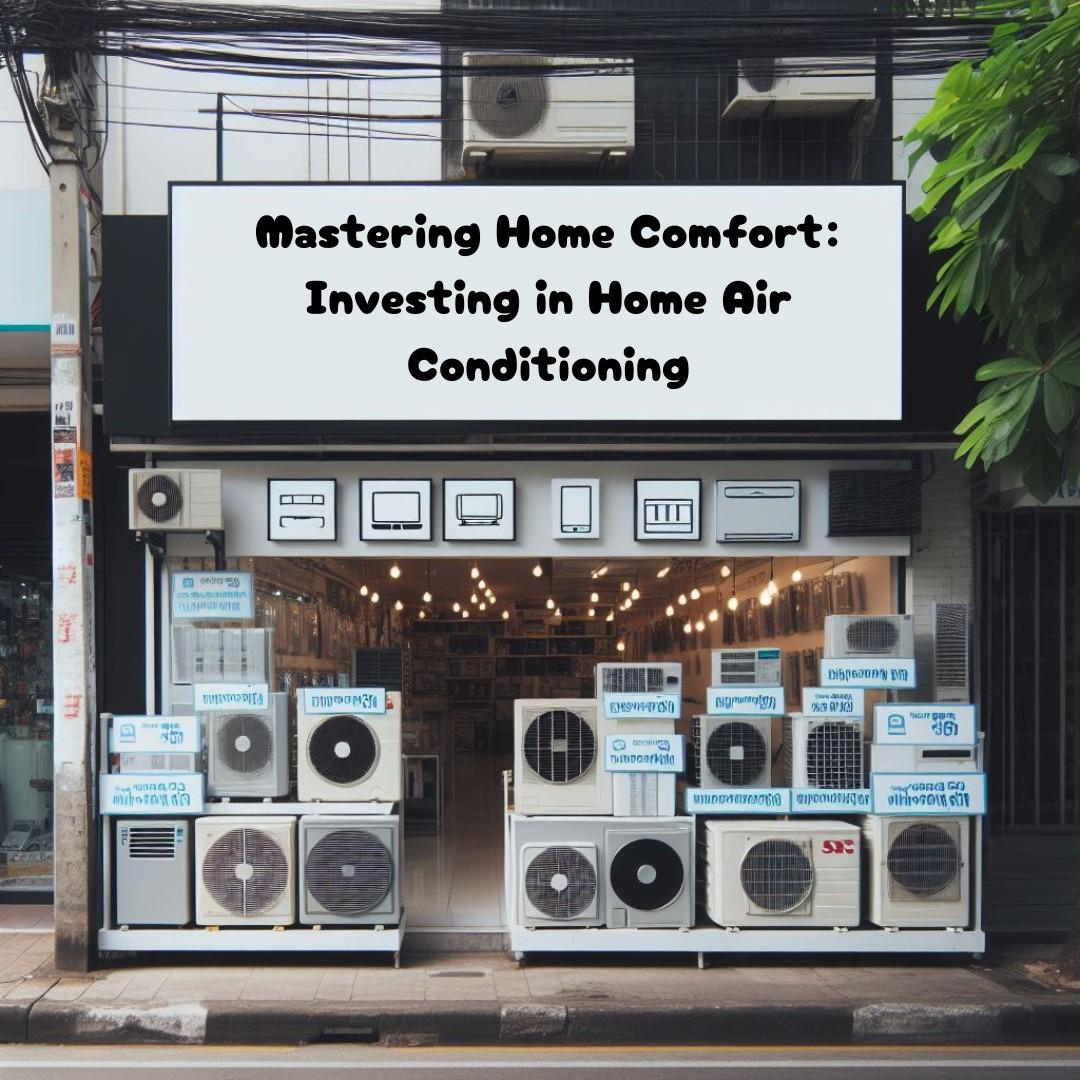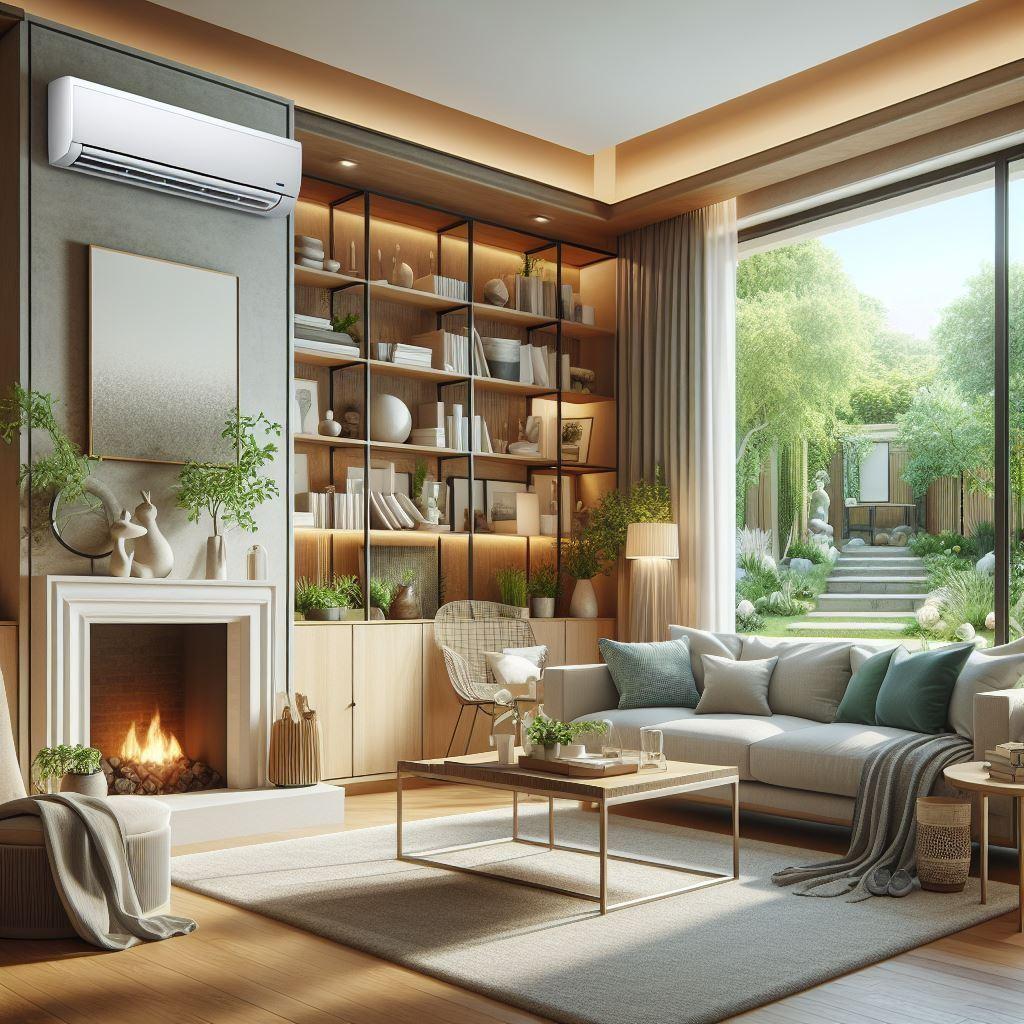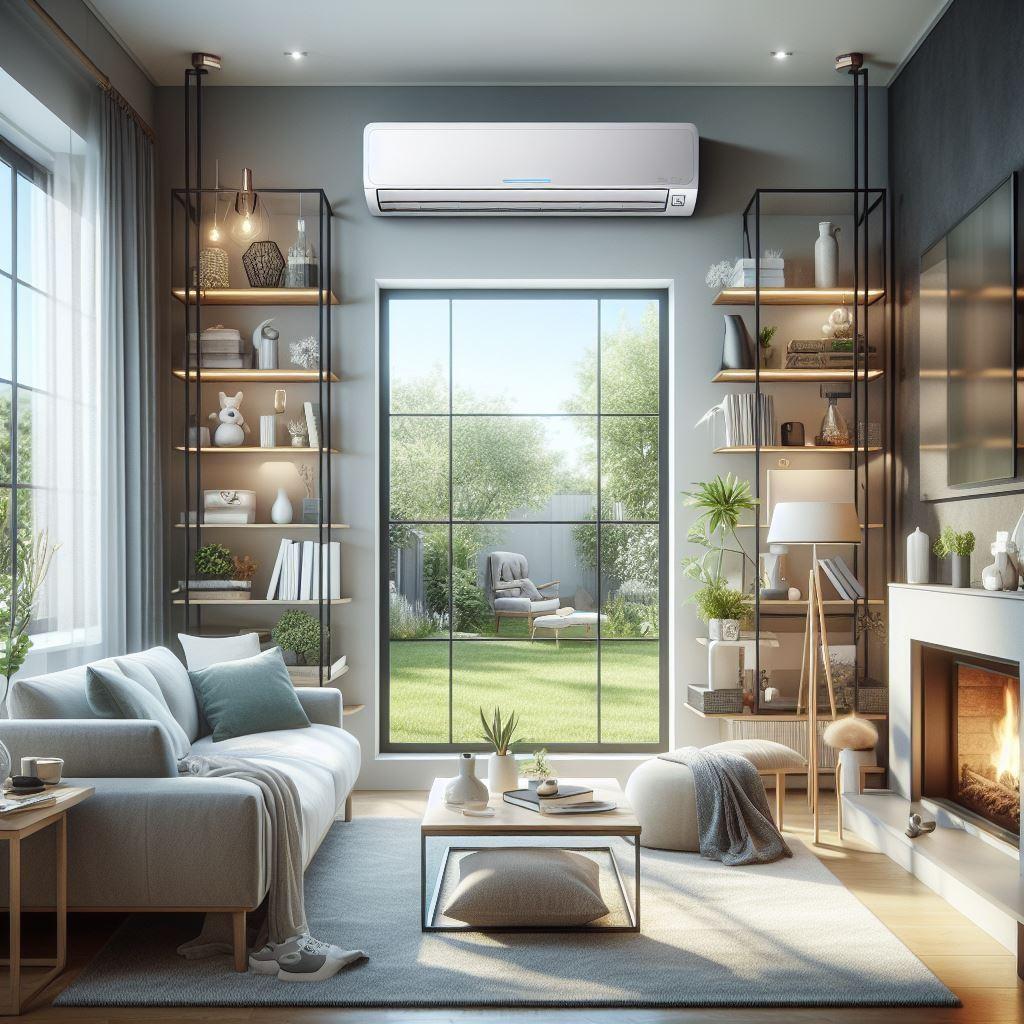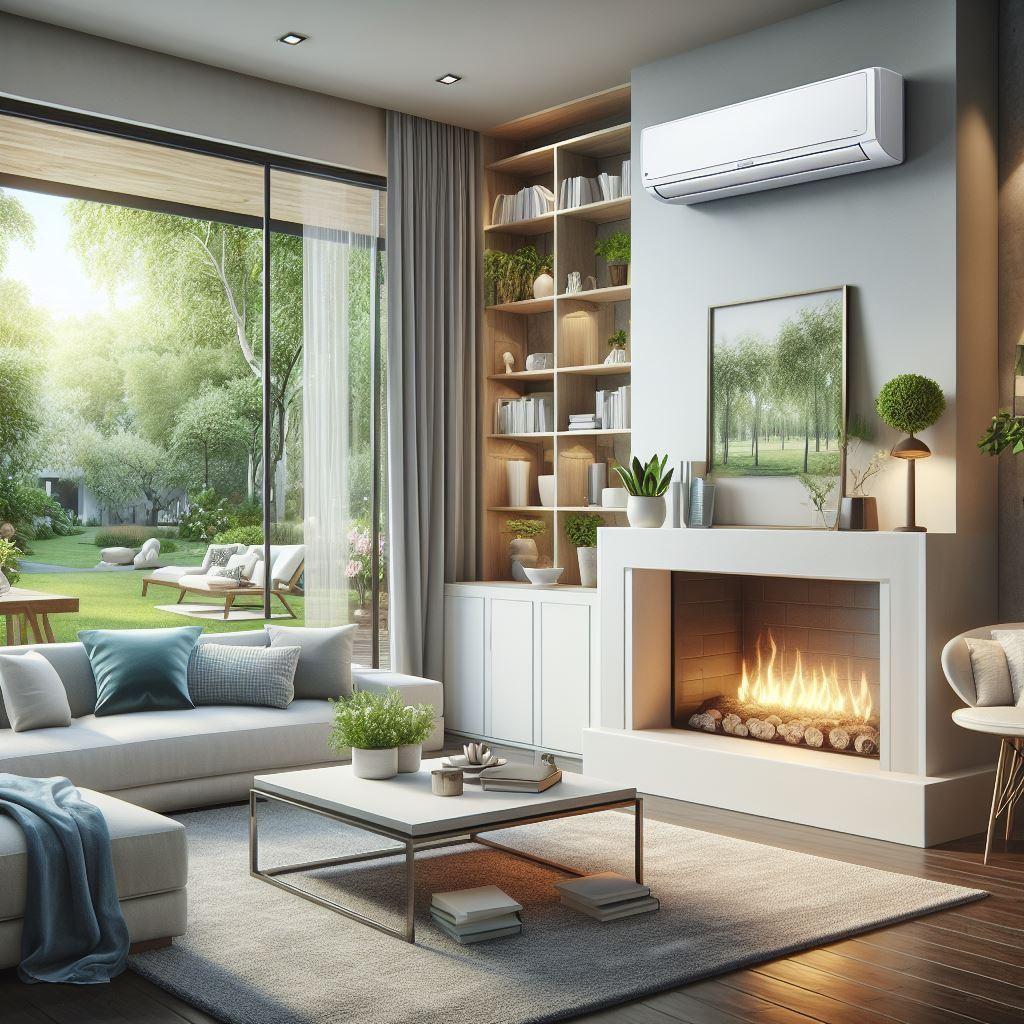

Chapter 1: Introduction
In the scorching heat of summer and the biting chill of winter, a reliable home air conditioning system stands as your fortress, ensuring not just temperature control but also numerous other benefits that contribute to a comfortable and healthy living environment. It
becomes a cornerstone for creating a haven where you can escape the extremes of weather, fostering an atmosphere that promotes relaxation, productivity, and overall wellbeing for you and your family.
Chapter 2: Why Should Homeowners Go for Home Air Conditioning?

Homeowners have started to realize the advantages they get after they invest in effective home air conditioning solutions, with some of them mentioned in brief below.
Year-Round Comfort
The primary and most obvious advantage of a home air conditioning system is its ability to regulate indoor temperatures, providing a haven of comfort during extreme weather
conditions. No more sweating through summer or shivering through winter, as a welldesigned system ensures a consistent, pleasant climate year-round.
Energy Efficiency to the Max
Modern air conditioning systems have come a long way compared to their earlier counterparts in terms of energy efficiency. With advancements in technology, many models now boast high energy efficiency ratings and other metrics, helping homeowners save on energy bills while reducing their carbon footprint. Choosing an eco-friendly air-conditioning system not only benefits the environment but also your wallet in the long run.
Improved air quality
Beyond temperature control, home air conditioning systems play a crucial role in enhancing indoor air quality. Quality filters can capture dust, pollen, allergens, and other airborne particles, preventing them from circulating in your home. This is particularly beneficial for individuals with respiratory conditions or allergies, creating a healthier living space.
Moisture Control to the Fullest
Air conditioning systems excel at regulating humidity levels within your home. By removing excess moisture, these systems prevent the growth of mould and mildew, safeguarding not only your health but also the integrity of your home’s structure. Maintaining optimal humidity levels also contributes to the longevity of furniture and electronic devices.
Enhanced sleep quality
A cool and comfortable bedroom is conducive to a good night’s sleep. Home air conditioning systems allow you to create an ideal sleep environment, optimizing your bedroom temperature for restful and uninterrupted sleep. Quality sleep is crucial for overall wellbeing, and an efficient cooling system can significantly contribute to achieving it.
Increased home security
Windows and doors can be securely closed when an air conditioning system is in use, providing an added layer of security for your home. This not only helps keep intruders at bay but also minimizes outdoor noise pollution, creating a peaceful and secure living space.
Boosted Productivity
Extreme temperatures can negatively impact your productivity and concentration. A comfortably cooled or heated environment ensures that you can focus on the tasks at hand without the distraction of discomfort. Whether you’re working from home or pursuing personal projects, an optimized indoor climate can enhance your overall efficiency.
Home Value Enhancement
Installing a high-quality air conditioning system can add significant value to your home. Potential buyers often view air conditioning as a desirable feature, especially in regions with extreme climates. This investment not only improves your current living conditions but also pays off when it comes to selling your property.
A well-chosen home air conditioning system is more than just a temperature control device; it's a gateway to enhanced comfort, health, and overall well-being. With that being said, how do you choose a good home air conditioning system? Let’s find out.
Chapter 3: How to Choose a Home Air Conditioning System?

Choosing the right home air conditioning system is crucial for ensuring optimal comfort and maintaining an enjoyable environment inside one’s home. However, choosing an appropriate home air conditioning system isn’t easy, and a lot of factors have to be taken into consideration.
Assess Your Home Needs
Start by evaluating your specific cooling requirements. Consider the size of the space you want to cool, the number of rooms, and any unique features that may impact airflow. This initial assessment will guide you in selecting a system with the appropriate capacity.
Energy Requirements
Always look for systems with high energy efficiency ratios and seasonal energy efficiency ratios. Higher ratings indicate greater energy efficiency, which not only saves you money on utility bills but also reduces environmental impact.
Type of System
Choose between central air conditioning, ductless mini-split systems, or window units based on your home’s structure and your preferences. Central systems are ideal for whole-house cooling, while ductless systems provide flexibility for specific zones. Window units are suitable for individual rooms.
Taking note of these considerations will help potential customers find the best option for their home when it comes to home air conditioning.
Chapter 4: Types of Home Air Conditioning Systems

Now that we have discussed how to find the best home air conditioning systems, here’s a breakdown of different air conditioning systems, each with its own set of advantages and disadvantages.
Central Air Conditioners
Central air conditioners are the most prevalent and relatively expensive option. They utilize a split system to distribute cool air through ducts installed in the home. Consisting of an outdoor unit housing the condenser and compressor and an indoor unit containing the evaporator coils and air handler, central air conditioners provide efficient cooling for larger spaces.
Ductless Mini-Split Air Conditioners
Similar to central air conditioners, ductless mini-split systems do not rely on ducts to circulate cool air. Instead, an outdoor unit connects to one or more indoor units mounted on walls or ceilings.
Portable air conditioners
Portable air conditioners offer flexibility as they are small, movable units that can be placed in any room requiring cooling. With a single unit containing all components, they use a hose to vent hot air outside through a window or wall. Although easy to use and install, portable air conditioners are generally noisier and less effective compared to other types.
Chapter 5: Conclusion
Mastering home comfort through effective and efficient air conditioning is a multifaceted journey. From creating a haven that transcends weather extremes to understanding the advantages of home air conditioning, the chapters have delved into critical aspects.
